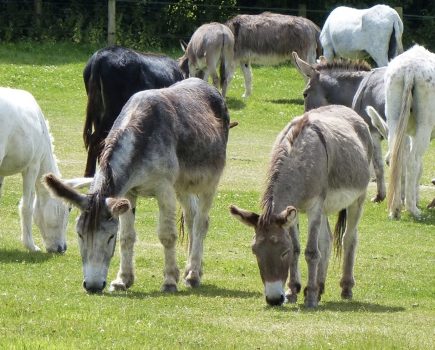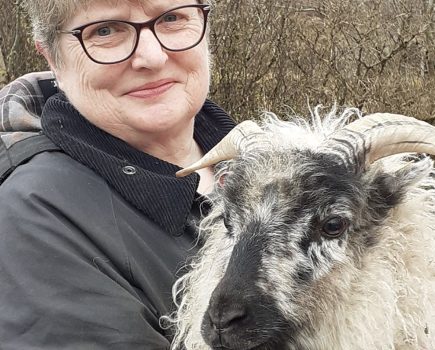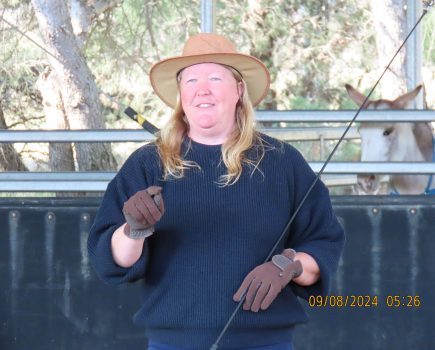FEBRUARY 27, 2008: The technology to combat bluetongue is there – and we should be using it. This is the view of Mary Marshall, an expert on animal diseases and a voice for smallholders at national level.
The key issues that need to be resolved in fighting bluetongue are the proper use of surveillance, the penetration of vaccination and the importance of ensuring the best and timely supply of vaccine for the whole of northern EuropeThis is the view of Mary Marshall, a member of stakeholder groups consulted by Defra and a champion of smallholders at national level.“Following a European meeting in January, where agreement on BTV-8 control measures was not reached, it is recognized that a number of issues still need to be resolved. These are the most important,” said Mary.“Tests are available to detect BTV-8 antibody in bulk milk samples. These could be successfully used to give information on the potential reservoirs or on new cases of disease, especially at borders between zones or areas of the country where disease is known to be present or believed to be absent. They could also be used as an additional surveillance tool where animals have been imported from other European countries. “Since the average dairy herd size in the UK tends to be large compared with the rest of Europe, some further validation may be necessary. The other species that are milked, goats, sheep and buffalo, could also be monitored in this way. The technology is there; we should be using it.“To ensure the free flow and supply of BTV-8 vaccine across the countries of northern Europe, it is essential that more than one vaccine manufacturer is involved, as with inactivated vaccines it is always possible that batch failures could occur. “Because these vaccines are being rushed through in an emergency situation, it is important that dose volume is confirmed and that the efficiency of the vaccine is shown through challenge studies. There could be subtle but significant differences between vaccines produced by different manufacturers. The reactions that the vaccine causes in the body could differ by species, age, dose volume and the presence or absence of previously acquired immunity (in the case of young animals). “The French experience in Corsica was emphasised during the Brussels meeting. An attempt there to control a different bluetongue strain by voluntary vaccination was unsuccessful in that the disease recrudesced following vaccinal cover achieved in 65 per cent of the susceptible animal population. Later, when a compulsory scheme was introduced and vaccinal cover in 85 per cent of the susceptible animal population was achieved, the disease was successfully controlled.“The implications of this experience for the UK is the importance of achieving a very complete uptake of vaccine, which will be difficult to accomplish by a voluntarily approach. All livestock keepers have a responsibility to ensure that the susceptible animals under their control are vaccinated as soon as supplies become available. This is particularly important in the Protection Zone to reduce the overall risk to the rest of the livestock population.”• Much further information not easily available from official sources, can be found at www.warmwell.com, says Mary Marshall, particularly:• Jan 20: “They have to opt for compulsory vaccination because otherwise they won’t reach the target and Brussels won’t pay.” • Feb 1: “We desperately need the vaccine but Defra won’t tell us what its intentions are.”







